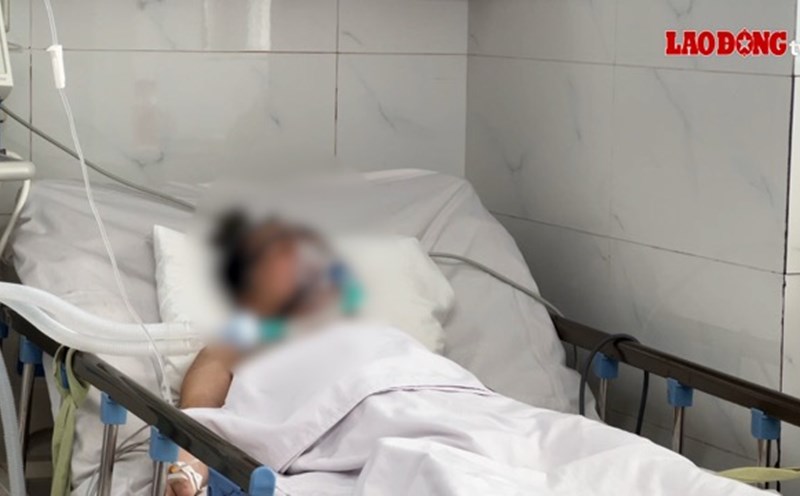Having suffered from heart failure, high blood pressure and chronic bronchitis for many years, Mr. N.V.A (82 years old, Ho Chi Minh City) had to be hospitalized for emergency treatment for severe respiratory failure and mechanical ventilation.
"I have been taking medicine for many years to control my asthma. but when the weather changed and for just one morning, I could not breathe normally, luckily my family took me to the emergency room in time, said Mr. A.
Patient N.T.P (67 years old, Ho Chi Minh City) also had many underlying diseases, before being admitted to the hospital on October 22, the patient was discharged from the hospital on October 21. But when he returned home, a sudden respiratory failure occurred, causing patient P to have difficulty breathing and respiratory problems, so he had to be hospitalized for emergency care.
Dr. Ngo The Hoang - Head of the Department of Respiratory Internal Medicine, Thong Nhat Hospital, Ho Chi Minh City - said that erratic weather, air pollution and subjective psychology during vaccination are causing the number of respiratory diseases to increase sharply in Ho Chi Minh City, pushing the Department of Respiratory Medicine, Thong Nhat Hospital into a state of overload.
According to Dr. Ngo The Hoang, the department currently has 50 beds but regularly receives 75 to 80 patients, many of whom have severe cases that require ventilator support. Many patients are hospitalized late, with respiratory failure or complications of pneumonia, leading to a long treatment time, said the doctor.
The cause is determined to come from many factors: changing seasons reduce resistance, creating conditions for viruses and bacteria to develop; seasonal flu viruses (Influenza A, B) and strongly circulating Brazilian strawberries; while smoke, tobacco and air pollution make chronic respiratory diseases such as bronchitis, COPD, bronchitis worse. After the COVID-19 pandemic, many people still have lung sequelae or reduced immunity, which are more susceptible to reinfection and progress more severely when suffering from other respiratory diseases.
According to Dr. Hoang, the groups most affected by this increase are the elderly, people with underlying diseases such as diabetes, high blood pressure, COPD, heart failure, people with weakened immune systems, pregnant women and young children. These are subjects that are prone to severe transformation, can progress rapidly to pneumonia, respiratory failure and have to use a ventilator if not detected early.
Faced with the overload situation, Thong Nhat Hospital has implemented many synchronous measures to ensure safe and timely treatment for patients. The department has added temporary beds, divided patients according to severity, prioritized beds for respiratory failure cases; increased doctors and nurses from other departments, working 24/7 during peak periods...
Dr. Hoang emphasized that regular vaccination against influenza and whooping cough each year is a simple but effective measure to help reduce the risk of hospitalization and death from respiratory diseases. People should also stay warm when the weather changes, limit exposure to dust and smoke, do not smoke and go to the doctor early when there are symptoms of cough, fever, and shortness of breath.
cau is a bacteria that causes pneumonia, meningitis, inflammation of the middle ear and sepsis. Vaccination can be done year-round, regardless of the season.
Children aged 6 weeks and over should be vaccinated according to the basic schedule; adults aged 50 or people with underlying diseases should be vaccinated early to prevent serious complications.
People who have never been vaccinated can choose PCV20 (1 single dose) or get vaccinated with PCV15 and then PPSV23 after 1 year. When vaccinated with seasonal influenza vaccine, the risk of hospitalization for community pneumonia is significantly reduced, while helping to limit the spread in the community.











